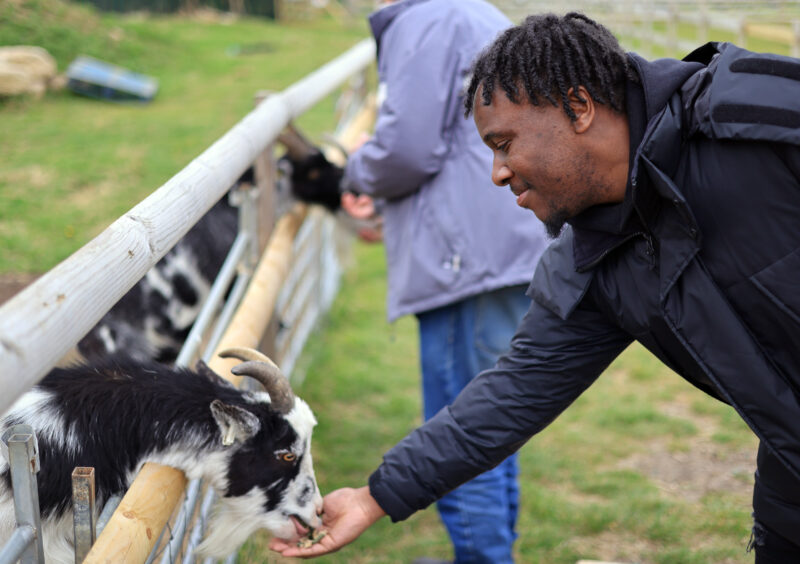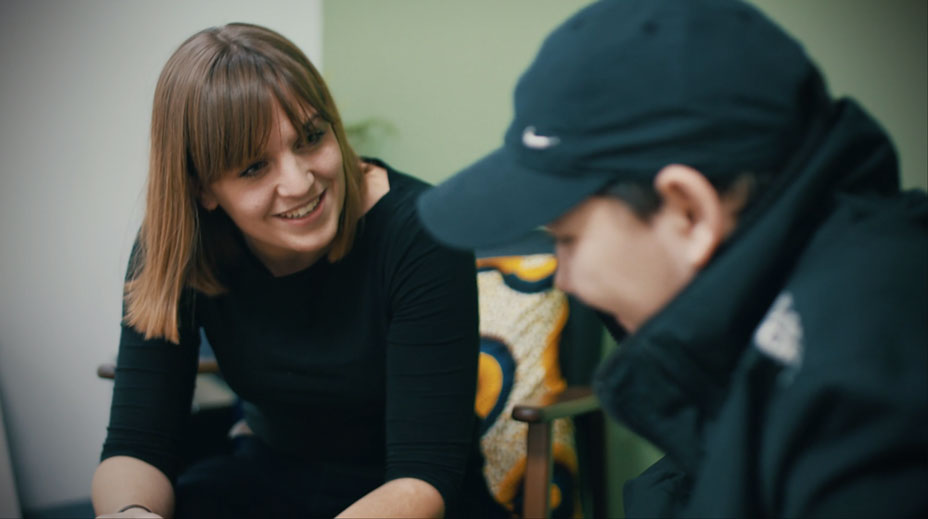07.07.2022 | Case Study
In practice: Support for informal carers in Norfolk and for vulnerable women across England

Understanding the views of unpaid carers in Norfolk & Forward Partnerships
Norfolk County Council offers a support service for people who perform a significant caring role (e.g. for unwell relatives). Traditional public services are often designed to focus on the needs of the cared-for individual; but looking after someone with serious illness or disability is physically and psychologically demanding. Many carers need help to be able to sustain their unpaid role – the value of which, across the country, is estimated by the Nuffield Trust to be equal to that of the NHS.
Norfolk’s service had been designed in partnership with carers from the outset, and already included an organisation dedicated to bringing their voice to the governance table. However, the council and delivery partners felt there was room for improvement.
“Finding out and listening to what people really want can be harder than you might think,’ says Sera Hall, Head of Integrated Commissioning at Norfolk County Council. “Sending around a survey is clearly not enough. And focus groups don’t really work: the risk is that the loudest voice dominates. We needed to work much harder to select genuinely representative groups of people with whom to share deep, exploratory conversations that tease out the issues, and what can be done about them. So the service has now paid a lot of attention to redesigning how we listen to our carers, and really trying to understand what would help them.”
Finding new and diverse ways to listen
The project team redesigned their formal consultations with carers – analysing participation and investing extra effort into attracting under-represented groups. This included finding ways to encourage quieter people to share their views, changing the interaction for people with visual/hearing impairments, and specifically targeting people from under-represented minority backgrounds.
A new measurement tool was introduced to record carers’ own opinions about different aspects of their life – quantified against standardised ranges, and stored securely so it could be analysed and used to prescribe practical solutions.
“We needed to work much harder to select genuinely representative groups of people with whom to share deep, exploratory conversations that tease out the issues”
In addition to these formal feedback processes, project staff were given dedicated training to seek honest feedback on the service informally through regular meetings with carers – so they could capture off-the-cuff remarks or comments over coffee that provided real insight. Teams proactively reached out to a sample of carers who had disengaged or never successfully started the service, to understand why, and what could have been done differently. A regular ‘mystery shopper’ exercise was also put in place, to test the carer experience through the service, and how it really compared against what carers said they wanted.
Lastly, carers were invited to participate directly in the evaluation. Academics trained in research-gathering from vulnerable groups selected 100 carers each year to understand their views, and ensure they were represented accurately. The Carers Advisory Board was also re-vamped, both to make it more representative, and to improve its influence and visibility.
Systemic influence
The team is now able to share rich learnings with other carers services around the country, and bring back other best practices to Norfolk from these exchanges. The new diverse listening strategy provided so much high-quality information that it was adopted by the Council for other services in adult social care. The contract has been changed to incorporate the carers’ own opinion of whether their life has improved as the primary contractual success metric. And in response to the feedback, Norfolk is expanding the availability of its support services to help more carers across the county.
Developing accountability to vulnerable women whose children are in care
Sadly, being listened to – and having agency – can be a rare occurrence for women who have had children removed from their care. However, listening to this highly vulnerable group and adapting to their needs can catalyse positive change.
The Forward programme – run in conjunction with expert partner Pause, plus delivery partners Trevi and Catch 22 – supports women across Plymouth, Derbyshire, Northamptonshire, and Worcestershire who have experienced, or are at risk of, repeat removals of children from their care.
The programme aims to give women a chance to take control of their lives and break a destructive cycle of repeat removals that causes both them and their children deep trauma.
In the traditional social care pathway, if a child is born who social services deem to be at high risk, the system focuses lots of attention on mother and child during pregnancy, and up to the point where a judge decides the child must be looked after by the state. At that point, as there is no statutory responsibility to support women once their children are removed, the mother is typically cut out of communication and receives little direct support to deal with this deeply traumatic event. The Forward partnerships aim to change that dynamic by not only providing intensive wrap-around help, but also making each of the women’s views and opinions the central focus of how this help is delivered.
“The new diverse listening strategy provided so much high-quality information that it was adopted by the Council for other services in adult social care”
When the evaluation began for the first Forward project in Plymouth, researchers were given the task of ensuring they interviewed as least half of all women who had been offered the service. The evaluation is based almost entirely on their feedback, following a series of deep, sensitively designed conversations. These were done in real time, with an update report published each year during service delivery. The research was designed explicitly for the results to be easily accessible to the women who had participated, and at every stage the conclusions were verified with them to ensure proper understanding of their recommendations.
Listening to what women in this service wanted meant that every healthcare pathway, practitioner relationship, dental appointment, mental health support, gym membership or other resource was created precisely for someone who would benefit from it, and who would know that their views had been really listened to and acted upon.


